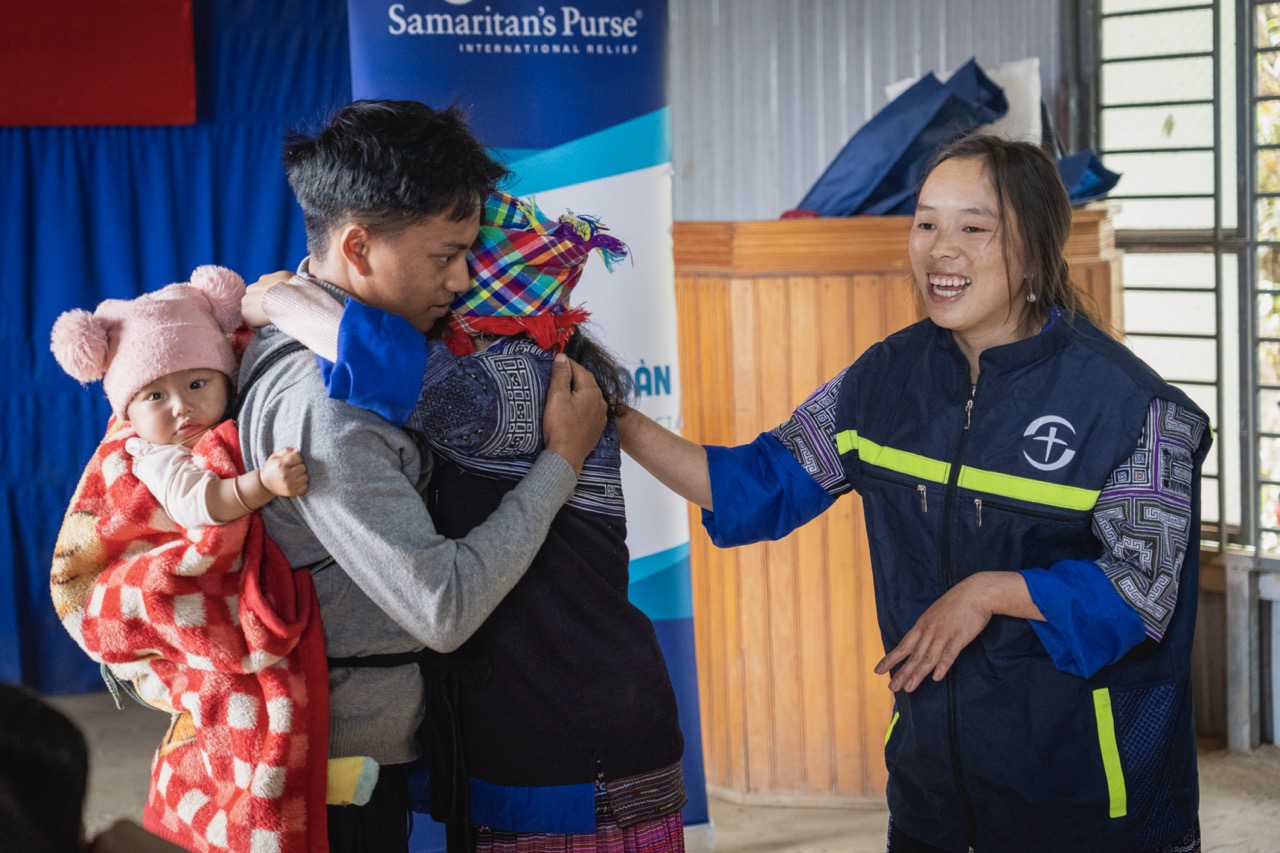Eighty-three, that is the percentage of all maternal deaths, stillbirth and newborn deaths that could be averted with quality midwifery care. In remote and low-resource settings, less than half of all women received antenatal care in their first trimester.
“I saw one case of a mother who died during childbirth because she did not have the proper care to deliver the baby in her home. This was one of many instances that I can remember. It’s a reminder that I need to dedicate myself to this work,” said Mrs. Lan.
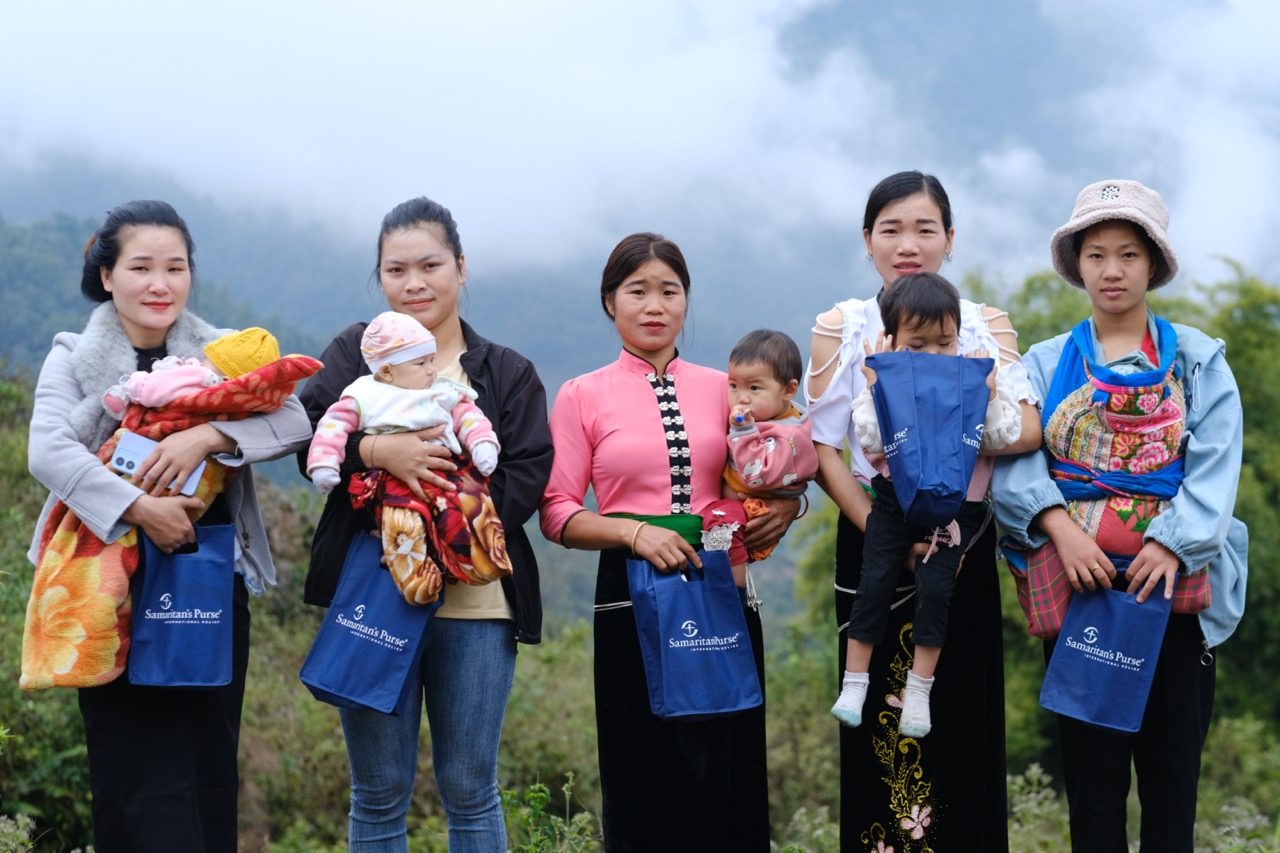
In her 28 years as a midwife, Mrs. Lan has witnessed too many mothers die in their homes during childbirth. Her own harrowing birthing experience inspired her to work with Samaritan’s Purse’s health and nutrition team where she conducts training for traditional birth attendants. Known as TBAs, these locally trained women work to cultivate trust with expecting mothers. Since 2021, they have conducted 1,200 home visits to perform pre- and post-natal check-ups. They also offer support during traditional home birthing and workshops for the community.
More than a third of maternal health workers had not received any refresher training since graduating. And half had not received any training since 2018. In 2023, Samaritan’s Purse hosted a week-long course aimed to equip local health workers to tackle maternal and infant mortality and infant malnutrition during their first 1,000 days. The course was hosted by Mrs. Lan.
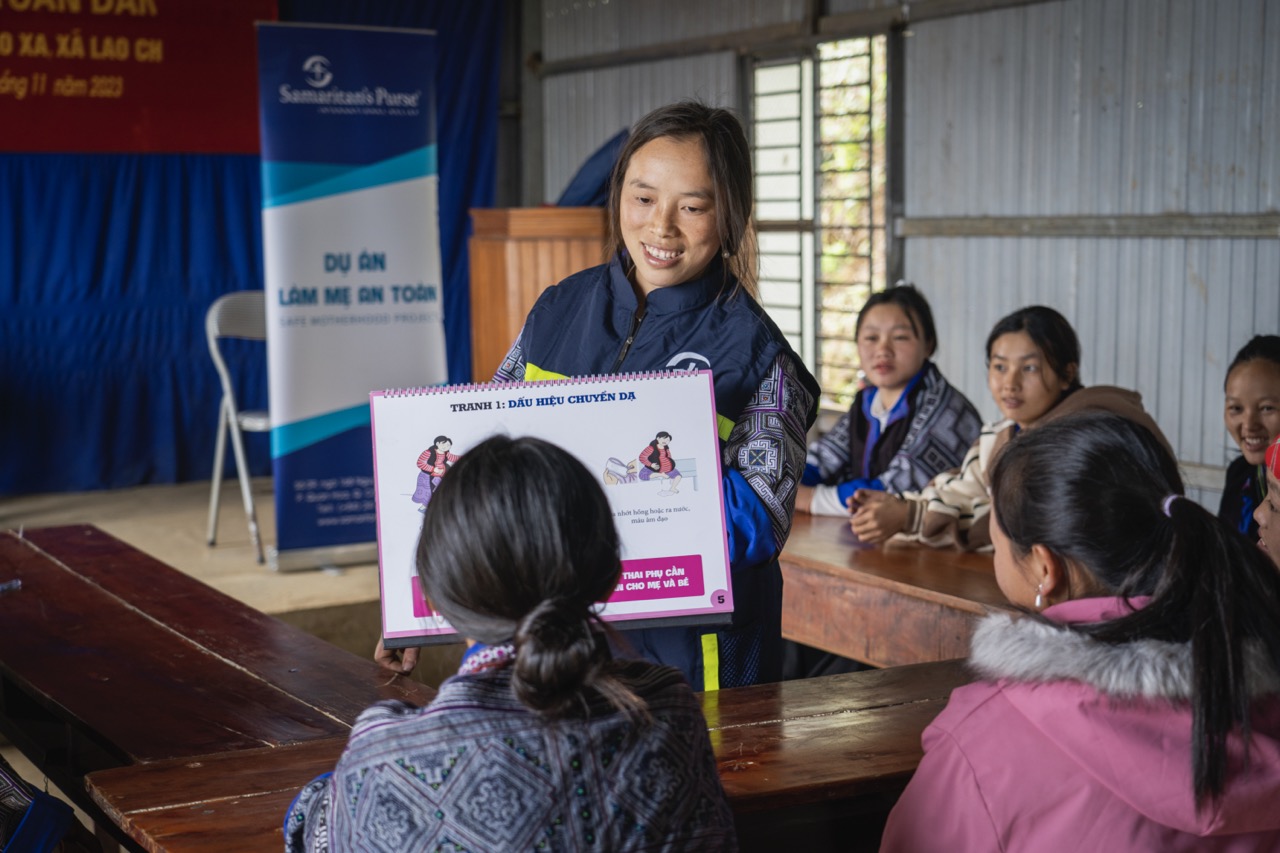
Que and Giang, together with 25 TBAs gathered to refresh and expand their skills throughout the week. Their confidence grew as they participated and shared experiences with their group. “Through my training with Samaritan’s Purse, I am able to stand in front of a class and share the knowledge I acquired with the others. I used to be shy to communicate with others, but now I am more excited to share my new knowledge with others,” Giang shared.
Que also shared her gratitude for the availability of the additional training: “I am thankful to Samaritan’s Purse for the training. It motivates me as a TBA to take care of the pregnant mothers in my community”.
Bless a Mum in Vietnam
This Mother’s Day, you can support a mother in Vietnam by giving towards a gift bag filled with essentials such as newborn tops, bottoms, socks, beanies, a changing mat and literature in their language. Gift bags are presented to parents when they attend a health and nutrition workshop hosted by their local traditional birth attendant.
As a token of our appreciation, we will mail you a special Mother’s Day card to celebrate the day with a loved one.

Workshops Foster Connection and Awareness
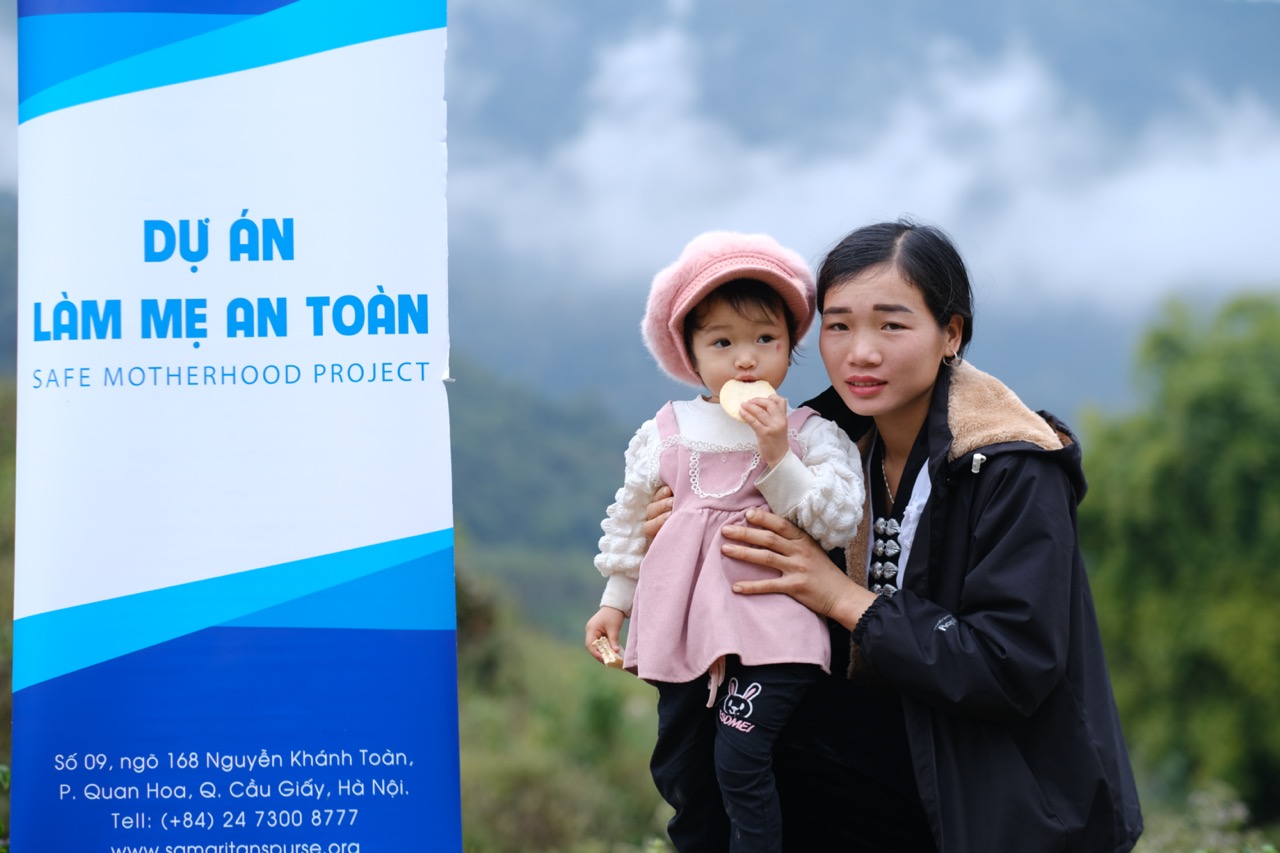
The presence of traditional birth attendants in villages like Pa Lieng has restored the joy of motherhood. In addition to check-ups and birthing assistance, they host information workshops to encourage and educate soon-to-be fathers and mothers. This regular contact allows parents to share experiences with each other. It also promotes awareness that they are not alone, and that help and assistance is available.
Ha, a 22-year-old mum attended the workshops hosted by Samaritan’s Purse health worker in her village. She shared her gratitude with our team and how it has been a positive step towards providing better, informed care for her daughter.
“Having a traditional birth attendant in my village gives me peace of mind. Whenever my daughter gets sick, I call them for advice on how to take better care of my daughter. They also regularly check on my daughter’s health and help me take her to a clinic if she gets very ill,” shared Ha.
Training Provides Peace for New Parents
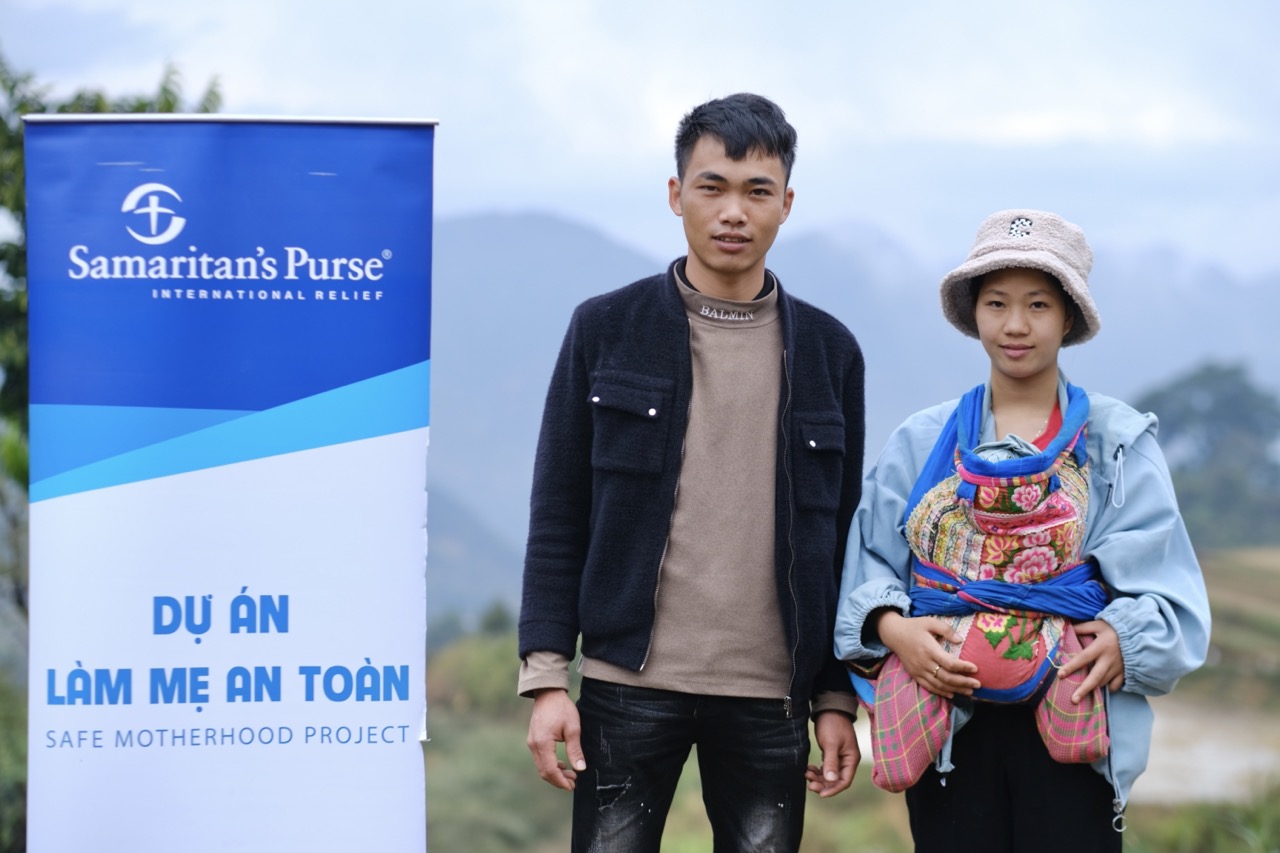
Newlyweds Lim and Hoang experienced the support from their local traditional birth attendant throughout their pregnancy. Hoang, a 22-year-old mum shared how they are now better informed to provide quality health and nutritional care for their newborn.
“Thanks to this training session, we have become more aware of warning signs to look out for in sick children. For instance, when a child has blood in their nappy, they require immediate admission to the hospital to be assessed by a doctor.
In the past, we would only take him to the hospital when his symptoms persisted or worsened. We would have simply allowed him to recover on his own or provided medicine that we bought from a local pharmacy. We hope there will be more training sessions like this in the future to help people in our village learn how to take care of our children,” shared Hoang.
